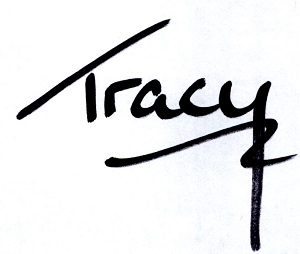
If you love stories, then finding more time to appreciate them is a good thing.
Stories have been around for as long as man has walked upright. They began as spoken tales, that taught us how to survive.
So Paleo Bob’s story around the campfire, “This time my mate was eaten by a tiger and I just escaped!” was a warning in disguise:
- not to go to the same watering hole where Bob saw the tiger,
- not to drink without someone on guard, and
- never go hunting with Bob.
Stories have grown far more sophisticated over the centuries, and now we get stories in books, on television and on the big screen, as well as a thousand stories that we still tell each other, often over and over. They still serve a vital purpose, though. They entertain, yes, but there are lessons in even the lightest and most superficial story about how human nature works.
I just bet your own family has dozens of favorite stories that get retold at get-togethers. Thanksgiving dinner disasters. Surviving bad weather and storms. Close escapes. Fun time. The time Harry got drunk and slept in the neighbor’s petunia patch.
All those family stories are exactly the same as the first stories ever told–they might not be cautionary tales, but they build a sense of family and community, and reinforce the bonds.
Everyone loves stories, but not everyone has time for them.
If you don’t read enough (or watch enough) stories to suit your tastes, or if you don’t read at all (and oh, I feel sorry for you!), but you want to read, then keep reading. I have five quick tips for finding and saving time, that you can retool and make reading time.
1. To “make” time, you have to give something else up.
We’re all maxed out. That’s a given. Sometimes, though, we are doing things we “should” be doing to meet external expectations. Sometimes, we do things out of pure habit. When we began those activities, they had real meaning. Now you can’t remember why you ever started.
Examine your week–keep a diary listed every activity, if you want to be very systematic–and see what pockets of time you can free up.
2. Combine activities to make room.
Don’t combine reading with something else (driving and reading is generally frowned upon). Combine other things instead, to make room for more reading.
If you have to drop someone off for training and then come back an hour later, which makes it a waste of time even going home, could you grocery shop while you’re waiting?
Can you do the laundry and practice French phrases?
Most readers use audio books while they’re driving (great idea!). However, listening to audio books while cleaning, gardening, or doing anything else means your attention is divided and you can’t properly enjoy the story.
Instead, why not listen to your emails? Did you know that most computers will read text these days? Android phones and iPhones all come with text to speech apps that will read anything you ask them to. Instead of using this low-quality time to only half-listen to your story, cut through your emails, blog posts, newsletters and other reading. Then use the quality time you save to read stories, instead.
3. Use pockets of “found” time.
This is where reading on your phone comes to the fore. When you’re waiting in line, when you’re waiting in a reception area, when you’re standing at the front door waiting for the rest of the family to be ready to go… There are dozens of opportunities every day when you have even a minute to whip out your phone and read a page or two of your story.
Even if you’re a print reader, a bit of imagination and unconventional thinking will have you taking advantage of spare moments, too. A cousin of mine, for example, used to chop up print books into chapter chunks. He would push the latest chapter into the top of his ski boot and read the chapter on the way to the top of the hill on the ski lift. When he got to the top, he’d shove it back in his boot, and ski down.
There’s always a way.
4. Read print. Don’t listen to audio.
One day I will talk about print versus audio. I’ve already jumped on audio once and I’m about to do it again, simply because it’s a huge chunk of even more time to listen to a single book — the average book is eight to thirteen hours long!
You would read two or even three books in that time, and probably absorb more of the story, too.
If you want to squeeze in more stories, read them. Don’t listen to them.
5. Read faster.
I’m not talking about speed reading, where you run your finger down the page and “absorb” the text with single eye scan movements. Ugh.
No, I mean, simply read a little faster than you usually do. Pick up the pace deliberately. Just a tad.
If you continually work to read a little bit faster than normal, every time you read, your “normal” keeps shifting upwards, until you’re reading much faster and still retaining everything you read, cutting down on the time it takes to read one book.
There is a case for slow reading, and one day I’ll talk about that, too. But reading faster will serve to let you read more.
____
These are just five simple tips for squeezing more stories into your life. There are a dozen other ways to find time, but some of them are major undertakings. I’ll deal with those in bigger posts in the future.
For now, start thinking about how you use your time, and where you might spend it better to find more time for stories.
Cheers,

.
Get the news that no one else does. Sign up for my newsletter.
For a short while, you get a bundle of ebooks, free, when you sign up, as a Starter Library. Details here.